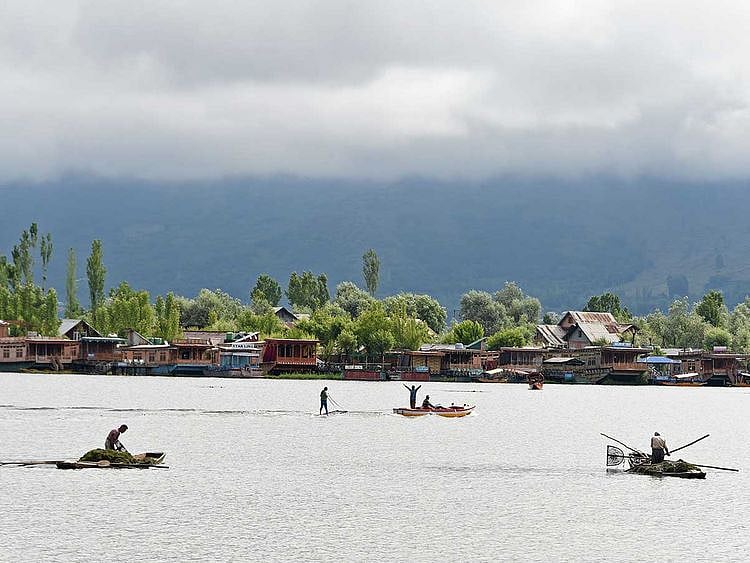Seeking the elusive peace in Kashmir
Revocation of Articles 370 and 35A from the constitution of India needs a stroke of a pen

The heated debate over Article 370 and Article 35A of the Indian Constitution is back with us. While Article 370 is the constitutional link between the Union of India and the state of Jammu and Kashmir, Article 35A lays out the definition of permanent residents of the erstwhile princely state of Kashmir.
The furious row is over whether these two articles can be abrogated, the pro-abolitionist lobby wants it revoked while the other side claims these articles are irrevocable. We are concerned here with the benefits of repealing these articles and not with the legal stand-off. Are there tangible benefits, a win-win for the Kashmiri civil society and the Union, if these articles are quashed? Will it unleash a profound transformation and thus lead to the “Kashmir problem” being resolved?
To take an informed decision, postcards from history are needed. The story is tortuous but simply put, at the time of partition and just after, while the 500-odd princely states including the State of Hyderabad joined the Union of India (some joined the state of Pakistan) only Kashmir under its ruler, Maharaja Hari Singh, refused to take a stand: The Maharaja prevaricated and even entertained the idea of independence.
To add to this impasse, two larger than life figures loom large over Kashmir’s history, Shaikh Abdullah (hero to some, arch villain to the others), the foremost mass leader of Kashmir and India’s first Prime Minister, Jawaharlal Nehru, the architect of modern India (to some, the leader singularly responsible for the Kashmir imbroglio).
One other significant historical fact needs regurgitation: purely on the basis of demographics some would argue that the princely state of Kashmir should have gone to Pakistan. And much as Nehru and Abdullah are vilified today (for both made a series of blunders), the fact is, in the absence of either of these leaders, India would never have been able to persuade Kashmir to join India.
And Article 370 is the thread that stitched large parts of the princely state into the fabric of India. Article 35A is but a crochet, to tighten the hook; the grant of special rights to ensure the demographics of the state remain unchanged.
Time to end special treatment?
But 70 years on it is legitimate to ask, isn’t it time to put an end to this special treatment? Perhaps it is this positive discrimination that is making Kashmir a festering wound on the body politic.
First, it must be understood that over time, Article 370 has been severely weakened in letter and spirit. It is dead in all but name. Yet there are rights enjoyed by Kashmiris that are in total defiance of the Indian Constitution; Article 35A gives the right to buy property or land, and many other benefits only to people defined as ‘permanent residents’. Indeed this precondition is a huge impediment to economic growth and therefore if article 35A, is removed, there would be massive flow of investment and consequently mass employment generated. The disaffected youth who are drawn to secession and violence would now get gainful employment and be weaned away from seditionist activities. Next, Article 370 may be a covenant carved in stone, but if it engenders sub-nationalism and makes a mockery of federalism enshrined in the constitution, it must go.
Also Read
Why UK never said sorry for Jallianwala BaghThe wild gyrations of India’s Pakistan policyA moment of reckoning for IndiaModi on the cusp of historySecond, this debate to be meaningful requires us to determine what the civil society in Kashmir wants. Here we run into challenges; for its three separate regions march to an extent to different drums. It is clear that Jammu and Ladakh want Article 370 to go. However the Valley refuses (most vehemently), but then must the Valley hold the entire state and the Union of India to ransom?
Third, and this is more important than any of those listed so far” in the absence of peace and normality will investment flow into J&K and create mass employment just by rescinding these articles? Surely no investor will take a risk if business conditions are not favourable.
After the exodus of the Kashmiri Pandits from the valley, Jammu residents did not rush to buy properties left vacant by the Pandits. Article 35A permitted them to take advantage of the distress sales that were on offer, yet they did not. Why? Security and business conditions were not conducive to such purchases. Perhaps now, induction of more soldiers (a massive surge) will bring an added layer of security and instil business confidence. The efficacy of such tactics is doubtful considering the repeated breaches in the past of the security grid that is already in place (notwithstanding the massive paramilitary presence).
So will this proposed abrogation be one more misstep in a series of blunders India has made over the years? Time alone will be the judge.
Ravi Menon is a Dubai-based writer, working on a series of essays on India and on a public service initiative called India Talks.
Sign up for the Daily Briefing
Get the latest news and updates straight to your inbox
Network Links
GN StoreDownload our app
© Al Nisr Publishing LLC 2026. All rights reserved.